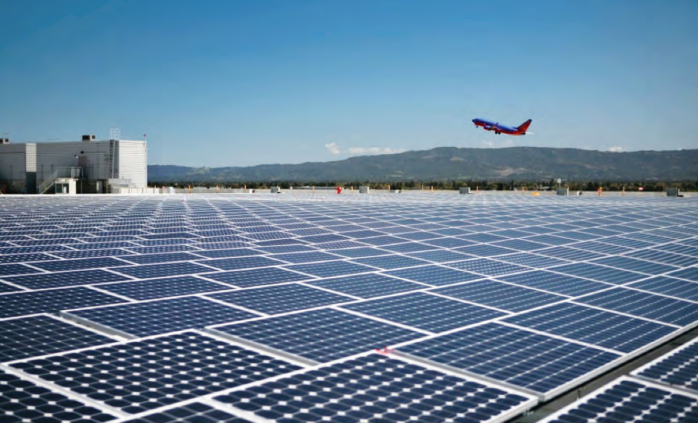Any talk about green transition and sustainability must not become a shiny façade for neocolonial schemes of plunder and domination—a view from North Africa.

Photo by khaoula ben on Unsplash
ADVERTISEMENT

When we talk about energy in the popular imaginary, we talk about coal, oil, and gas. Most of these resources (especially the latter two) come from the South. The mode of controlling and plundering these resources is called extractivism. It was set into motion in 1492 with the conquest of the Americas and has been structured through colonialism, slavery, exploitation, and sheer violence. It continues today with the creation of “sacrifice zones” with “sacrificial people,” as well as in the form of imperialist war machinations and the militarist governance of the world.
The economies of the global South are inserted in a subordinate position within a profoundly unjust global division of labor: on one hand as providers of cheap natural resources and a reservoir of cheap labor, and on the other as a market for industrialized economies. This situation has been imposed and shaped by colonialism and attempts to break away from it have so far been defeated by the new tools of imperial subjugation: crippling debts, the religion of “free trade”, structural adjustment programs (SAPs), among others. Much of this has happened with the backing of parasitic domestic elites.
These tools of domination not only lock countries in the global South into an outward-looking economic model—geared toward responding to the demands of the rich countries—but also limit the policy space for making sovereign decisions, such as moving away from fossil fuels. A telling example in this respect is the Energy Charter Treaty (ECT), a dangerous investment agreement that allows the fossil fuel industry to keep hold of resources and continue harming the planet.
Agribusiness is another locus where imperialist domination and climate change intersect. It is one of the drivers of climate change and, moreover, keeps many countries in the South prisoners of an unsustainable and destructive agrarian model. This model is based on the export of cash crops and the exhaustion of land and the rare water resources in arid and semi-arid regions, such as Egypt and Morocco.
Although certain Western governments portray themselves as pro-environment by banning fracking within their borders and setting carbon emission-reduction targets, they offer shale resources in their former colonies, something that France did with Total in Algeria. Displacing the costs of such a destructive industry from North to South is one strategy of imperialist capital in which environmental racism is wedded to energy colonialism.
Transitions to renewable energy can be extractivist in nature. Two examples from North Africa show how energy colonialism is reproduced in the form of green grabbing. The Ouarzazate Solar Plant was launched in 2016, and was praised to be the largest solar plant in the world. But scratching under the surface reveals a gloomy picture. First, the plant was installed on the land of Amazigh agro-pastoralist communities without their approval and consent. Second, this mega-project is controlled by private interests and has been financed through $9 billion worth of debt. Third, the project is not as “green” as its proponents claim it to be. It requires extensive use of water to cool and clean the solar panels. In a semi-arid region like Ouarzazate, diverting water from drinking and agriculture can be fatal to the locals. The same is true for the Tunur Solar Project in Tunisia, which delivers low-cost power to Western Europe while depriving Tunisians from much needed energy. Familiar colonial schemes are being rolled out in front of our eyes: the unrestricted flow of cheap natural resources (including solar energy) from the South to the North, while Western Europe fortifies itself to prevent human beings from reaching its shores.
A green and just transition must fundamentally transform and decolonize our global economic system, which is not fit for purpose at the social, ecological, and even biological level. It also necessitates an overhauling of the production and consumption patterns that are energy-intensive and utterly wasteful, especially in the global North. We need to break away from the imperial and racialized (as well as gendered) logic of externalizing costs that if left unchallenged, only generate green colonialism and a further pursuit of extractivism and exploitation (of nature and labor) for a supposedly green agenda. The fight for climate justice and a just transition needs to acknowledge the different responsibilities and vulnerabilities of the North and South. Ecological and climate reparations must be paid to countries in the South that are the hardest hit by climate change and have been locked by global capitalism in a predatory extractivism.
In a global context of an imperial scramble for influence and energy resources, any talk about green transition and sustainability must not become a shiny façade for neocolonial schemes of plunder and domination.
Hamza Hamouchene is a London-based Algerian researcher and activist. He is currently the North Africa program coordinator at the Transnational Institute (TNI).
Before it’s here, it’s on Africa is a country
Statements, comments or opinions published in this column are of those of the author(s) and do not necessarily reflect the editorial policy of Warsan magazine. Warsan reserves the right to moderate, publish or delete a post without prior consultation with the author(s). To publish your article or your advertisement contact our editorial team at: warsan54@gmail.com

